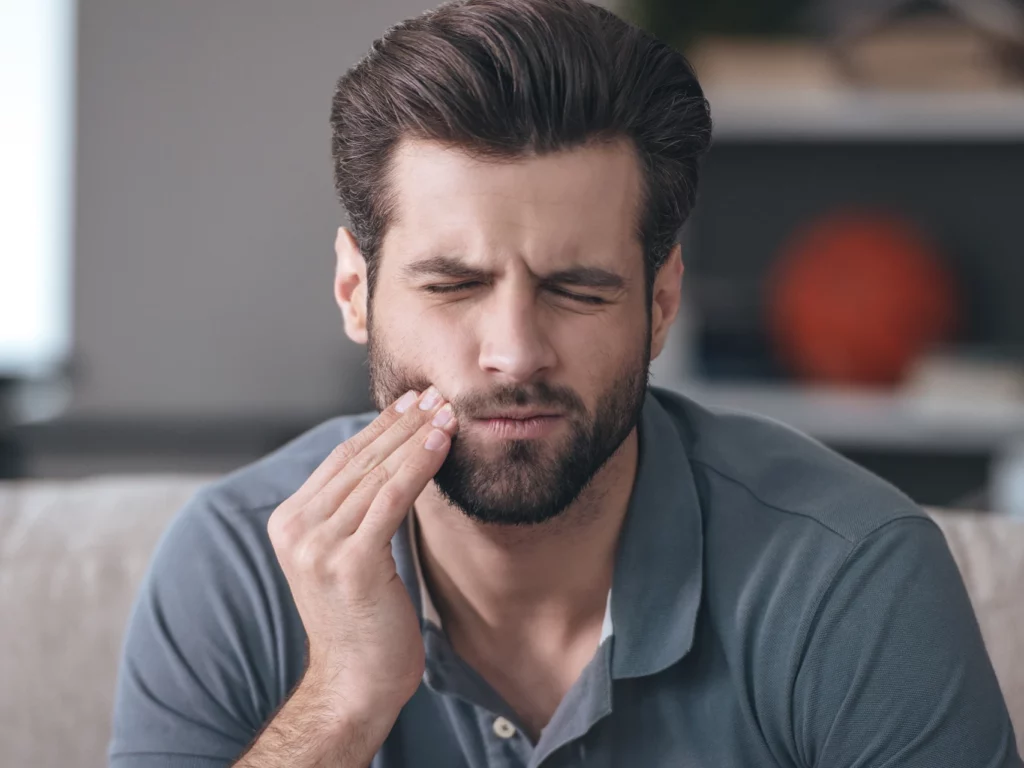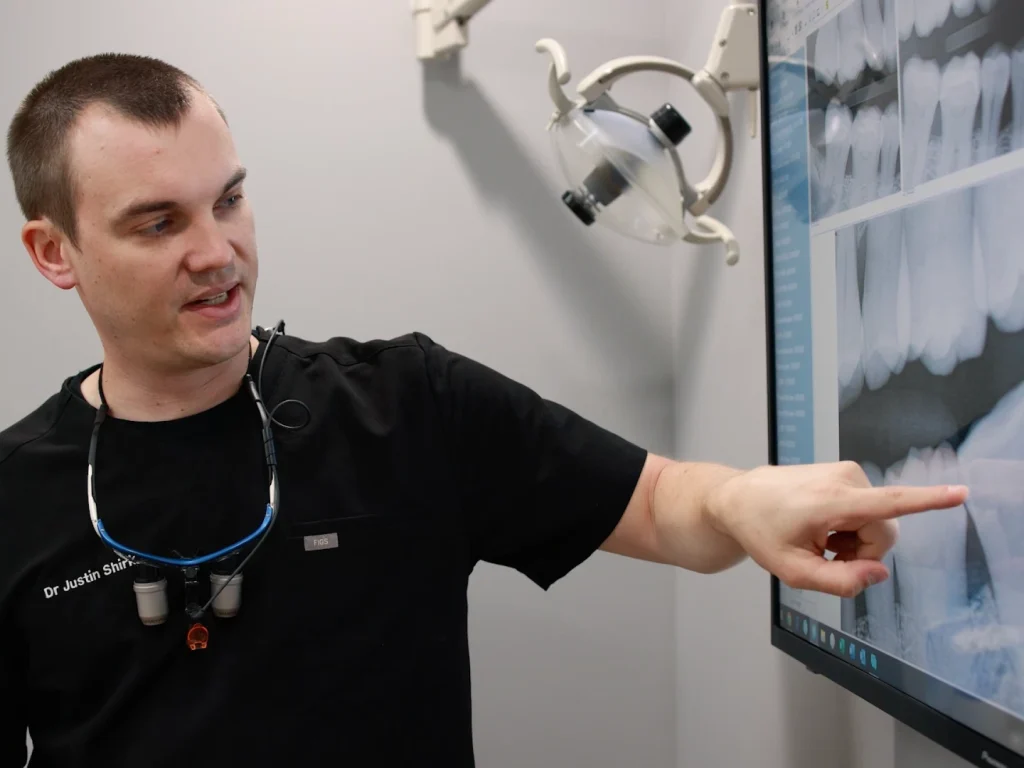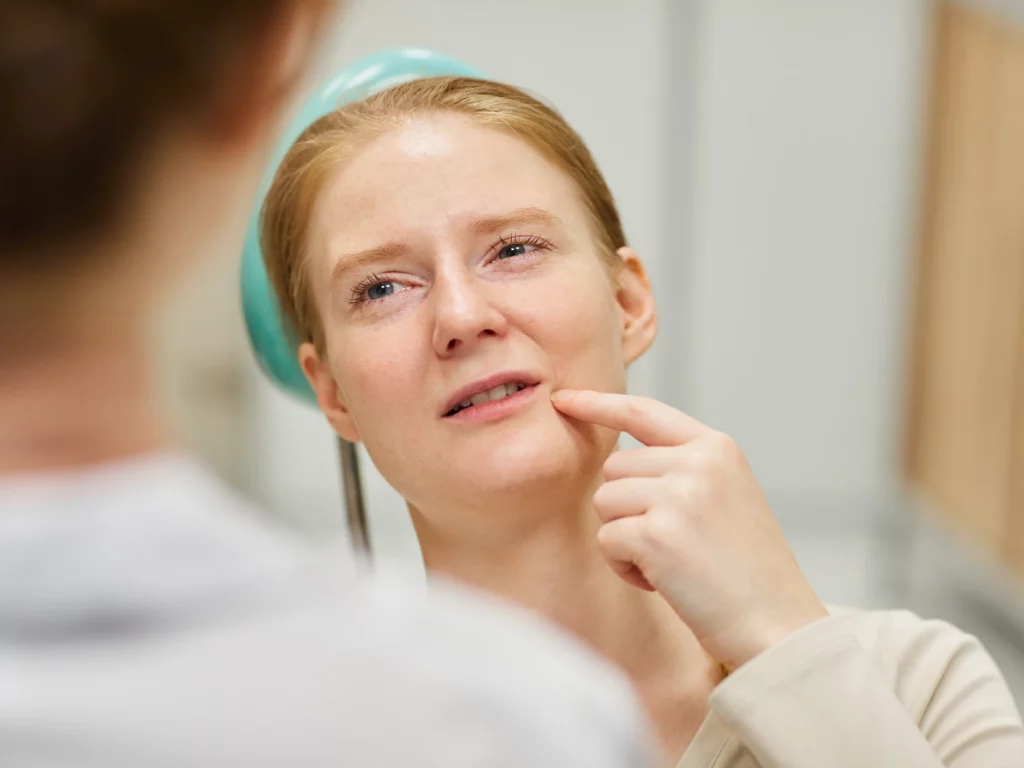Same Day Dental Appointments | Looking for an emergency dentist near you? Look no further! When it comes to dental emergencies, time is of the essence, which is why we offer same-day emergency dentist appointments to get you out of pain and on with your life. We provide emergency dental services near you and prompt attention to alleviate your pain and discomfort as soon as possible.
After Hours Assistance | We know that dental emergencies often happen outside of business hours, which is why we’re available to assist after hours so that you get the timely relief you need before coming into our office. If you experience a dental emergency outside of our office hours, please call us at (402) 483-7502 and we will get you in as soon as the next business day.
Don’t let dental emergencies disrupt your life – contact us now to schedule an appointment with the most reliable emergency dentist in Lincoln.



We offer a comprehensive range of emergency dental services and utilize advanced technology to provide you with exceptional dental care. Our skilled dentists are experienced in addressing the following dental emergencies:
Gum pain can be a sign of various underlying issues, such as gum disease, infection, or inflammation. Through a comprehensive evaluation, our emergency dentist will determine the root cause of your pain and recommend appropriate treatment. In severe cases, advanced treatments like periodontal therapy or root canal treatment may be recommended.
Don’t ignore your symptoms – visit our emergency dentist for a proper diagnosis and get the severe gum pain relief you need today.
Seeing our emergency dentist after cracking, chipping, or breaking your tooth is critical. A damaged tooth can expose the inner layers of the tooth, leading to increased sensitivity, pain, and potential infection. Our emergency dentist can assess the damage and restore your tooth’s functionality and appearance with the appropriate treatment. Early intervention can prevent further complications and ensure a higher chance of a successful repair.
An emergency tooth abscess is a painful condition where pus accumulates near a tooth due to a bacterial infection. It causes severe pain, swelling, redness, and can even lead to a fever. Tooth abscess treatment involves addressing the underlying infection to relieve the associated pain. The exact treatment approach depends on the severity and location of the dental abscess.
Losing a crown or filling exposes the underlying tooth structure, leaving it vulnerable to decay, sensitivity, and further damage. Promptly replacing the restoration prevents bacterial entry, reduces infection risk, and restores the tooth’s strength and functionality. Replacing a lost tooth crown or filling will also help maintain proper bite alignment and prevent the shifting of adjacent teeth.
When experiencing a knocked out or loose tooth, prompt action is critical. If your tooth is knocked out, keep it moist by placing it in milk or saliva and seek immediate dental attention. If your tooth is loose, avoid wiggling or applying force to it.
See our dentist as soon as possible to evaluate the situation and determine the best course of action. Early intervention increases the chances of saving your tooth and helps prevent further complications.
An emergency dental extraction may be necessary if your tooth is extremely loose due to trauma or has significant decay. In such cases, our dentist will perform an emergency tooth removal to prevent further complications.
Experiencing a toothache can be incredibly uncomfortable and disruptive to your daily life. A toothache can vary from a dull, persistent ache to a sharp, intense pain. Seeking an emergency dentist is essential for getting an accurate diagnosis of the issue.
Our toothache pain treatment will focus on alleviating discomfort and addressing the underlying cause of your symptoms. Depending on the nature of your toothache, our doctor will recommend the most appropriate treatment option to help you achieve immediate tooth pain relief.
In most cases, a tooth extraction is used only as a last resort if other restorative dental procedures are unsuccessful. Common reasons why you might need a tooth pulled include:
While it may be scary to hear that you need a tooth pulled, our compassionate dental team uses gentle techniques, modern technology, and anxiety-reducing sedatives. This ensures that our patients experience a pain-free extraction with minimal risk of complications.
Dr. Shirk will also discuss the ways we can replace the tooth before moving forward. Dental implants, bridges, or dentures, may be good options for replacing missing teeth and Dr. Shirk will discuss the benefits of each option to help you decide on the best way to restore your smile!
If you are not sure your situation is an emergency, call us anyway. We’re happy to assess your condition over the phone and help you determine if you need immediate attention. We also recommend that you call us before heading to an emergency room. Most hospitals don’t handle tooth emergencies, and you could save time and money by calling Pioneer Greens Dentistry first.
Need to see an emergency dentist in your area but don’t have insurance? Not a problem! Patients who would like to break their treatment costs into affordable monthly payments can benefit from working with a financing company. Applying for financing is quick and easy, and you’ll receive an instant decision so you can proceed with your treatment promptly.
If you are interested in seeing our emergency dentist but don’t have insurance, call Pioneer Greens Dentistry today at (402) 483-7502 to speak with our insurance coordinator who can provide more information about our financing options.
We accept most PPO plans, and our treatment coordinator will be able to provide an estimate of what your plan may cover. We’re also happy to bill your dental insurance plan on your behalf to help you maximize your benefits. Visit our Insurance & Financing page to view the insurances we are in-network with.
You’re in the right place! Whether you need a same-day appointment or after hours assistance, our friendly dental team at Pioneer Greens Dentistry is here to help. Don’t hesitate to call our office or book an appointment online if you are experiencing any of the following:
Call Pioneer Greens Dentistry right now or book an emergency dentist appointment online 24/7. We offer same-day appointments and after hours assistance for dental emergencies.
Call us right now or book an appointment online 24/7. Regardless of your emergency, Pioneer Greens Dentistry provides all emergency dental services to get you out of pain and back to your normal self.
Yes! If you are experiencing a bad toothache or have an infected tooth, you may need an emergency dental extraction. Our doctors will make sure you get the treatment you need.
Pioneer Greens Dentistry provides same-day emergency dental appointments for all patients and after-hours appointments for existing patients. We will work to get you into our office for treatment as soon as possible.
We understand that when you have a dental emergency, timing is not always convenient. Your health and comfort are our first priority, so we make ourselves available after hours to assist you with your pain before you come into the office to ensure you receive the relief you need when you need it.
Yes! Call us right now to get help today. We’ll even assist you after hours to make sure you get the timely relief you need before coming into the office.
Common dental emergencies include:
Come see your Lincoln emergency dentist at Pioneer Greens Dentistry as soon as possible. Dr. Shirk can provide you with treatment and medications to reduce both tooth pain and swelling.
Call us right now or book an appointment online 24/7. Dr. Shirk understands that there is nothing worse than seeing your child in pain. That’s why Pioneer Greens Dentistry provides same-day emergency appointments for children. Existing patients can access after-hours emergency care for their children.
Our patients are our biggest fans. Here are a few highlights from our public reviews.
Monday
8AM – 5PM
Tuesday
8AM – 5PM
Wednesday
8AM – 5PM
Thursday
8AM – 5PM
Friday
CLOSED
Saturday
CLOSED
Sunday
CLOSED